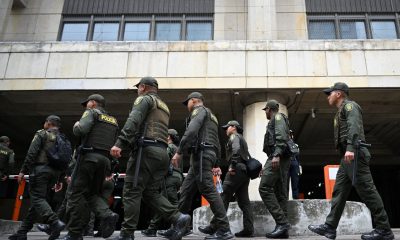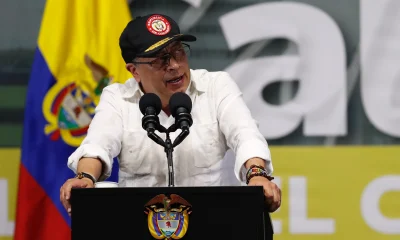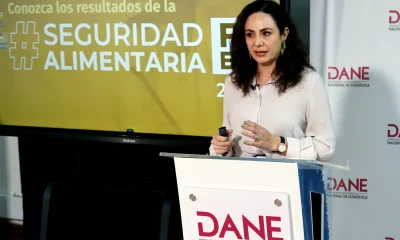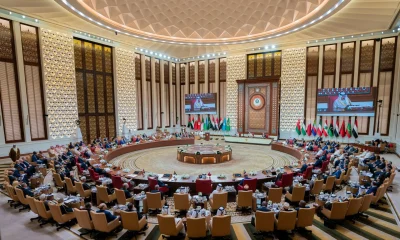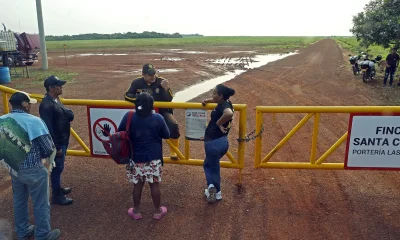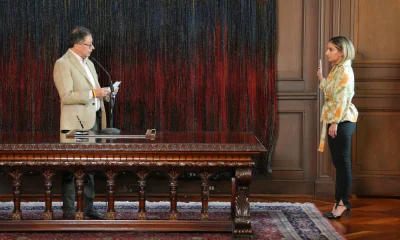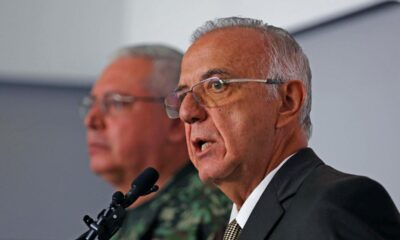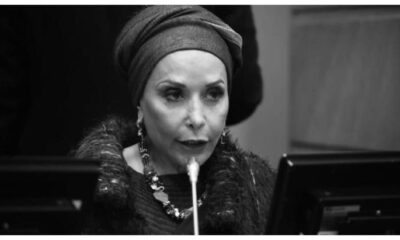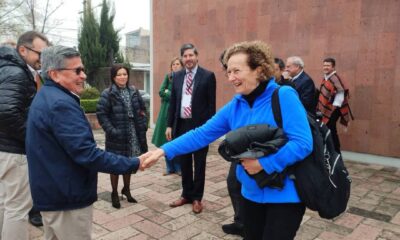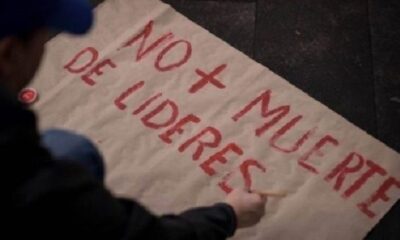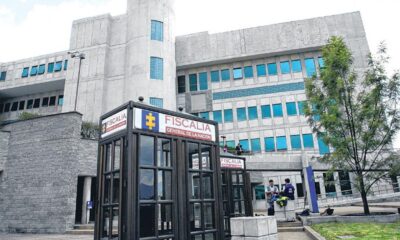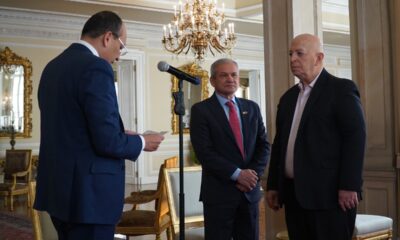International
Colombia police sexually abused at least 28 during protests: Amnesty
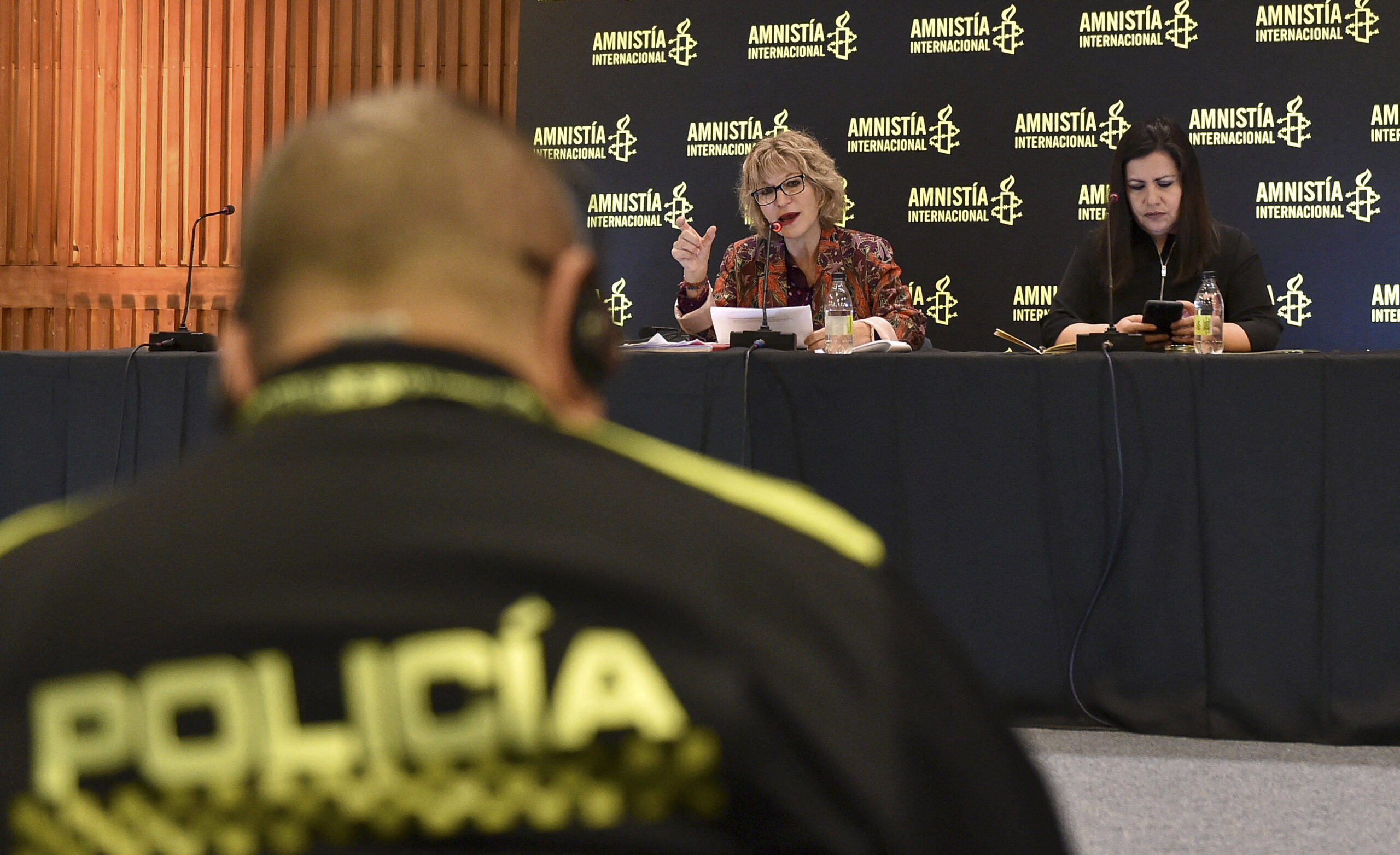
| By AFP |
At least 28 people were sexually abused by police during Colombia’s mass anti-government protests last year, Amnesty International said Thursday.
Having received hundreds of reports of gender-based violence during that upheaval, the international rights NGO documented 28 cases in seven cities, including the South American country’s capital Bogota.
The cases detailed in Amnesty’s 68-page report, entitled “The police does not care for me: Sexual violence and other gender-based violence in the 2021 National Strike,” occurred between April 28 and June 30, 2021.
During that time, hundreds of thousands of people enduring economic strife caused by the pandemic took to the streets to protest against a proposed tax hike by then-President Ivan Duque (2018-2022), which he ultimately withdrew.
Police brutally cracked down on the unprecedented youth-led social uprising, with the UN reporting at least 46 deaths and accusing security personnel of serious human rights violations.
Erika Guevara, Amnesty’s director for the Americas, said at a Bogota event presenting the report that “state violence faced by the population… was part of a generalized pattern against the protesters.”
The Amnesty report details multiple instances of police, after deploying tear gas and other dispersal measures on peaceful gatherings, taking women aside and assaulting them.
The report also describes police insinuating to detained male protesters that they would be punished through sexual violence, before placing them in rooms where they were sexually assaulted.
“The common factor in all cases is the intention behind this use of violence: the perpetrators sought to punish the victims for contravening social gender norms and going out onto the streets to claim their rights,” the report says.
Deploring the lack of convictions for the sexual violence, Amnesty secretary general Agnes Callamard said: “The violence of the street translated into the violence in the judicial system translated into the violence of the system altogether.”
International
U.S. Senate Rejects Budget, Bringing Government Closer to Shutdown Amid DHS Dispute

The U.S. Senate voted on Thursday against a budget proposal in a move aimed at pressuring changes at the Department of Homeland Security (DHS), following the killing of two civilians during a deployment of immigration agents in Minneapolis.
All Senate Democrats and seven Republican lawmakers voted against the bill, which requires 60 votes to advance, pushing the country closer to a partial government shutdown that would cut funding for several agencies, including the Pentagon and the Department of Health.
The rejection came as Senate leaders and the White House continue negotiations on a separate funding package for DHS that would allow reforms to the agency. Proposed measures include banning Immigration and Customs Enforcement (ICE) agents from wearing face coverings and requiring them to use body-worn cameras during operations.
The vote took place just hours after President Donald Trump said he was “close” to reaching an agreement with Democrats and did not believe the federal government would face another shutdown, following last year’s record stoppage.
“I don’t think the Democrats want a shutdown either, so we’ll work in a bipartisan way to avoid it. Hopefully, there will be no government shutdown. We’re working on that right now,” Trump said during a Cabinet meeting at the White House.
International
Trump Says Putin Agreed to One-Week Halt in Attacks on Ukraine Amid Extreme Cold

U.S. President Donald Trump said on Thursday that he secured a commitment from Russian President Vladimir Putinto halt attacks against Ukraine for one week, citing extreme weather conditions affecting the region.
“Because of the extreme cold (…) I personally asked Putin not to attack Kyiv or other cities and towns for a week. And he agreed. He was very pleasant,” Trump said during a Cabinet meeting broadcast by the White House.
Trump acknowledged that several advisers had questioned the decision to make the call.
“A lot of people told me not to waste the call because they wouldn’t agree. And he accepted. And we’re very happy they did, because they don’t need missiles hitting their towns and cities,” the president said.
According to Trump, Ukrainian authorities reacted with surprise to the announcement but welcomed the possibility of a temporary ceasefire.
“It’s extraordinarily cold, record cold (…) They say they’ve never experienced cold like this,” he added.
Ukrainian President Volodymyr Zelensky later commented on the announcement, expressing hope that the agreement would be honored.
International
Storm Kristin Kills Five in Portugal, Leaves Nearly 500,000 Without Power

Storm Kristin, which battered Portugal with heavy rain and strong winds early Wednesday, has left at least five people dead, while nearly half a million residents remained without electricity as of Thursday, according to updated figures from authorities.
The revised death toll was confirmed to AFP by a spokesperson for the National Emergency and Civil Protection Authority (ANPEC). On Wednesday, the agency had reported four fatalities.
Meanwhile, E-Redes, the country’s electricity distribution network operator, said that around 450,000 customers were still without power, particularly in central Portugal.
Emergency services responded to approximately 1,500 incidents between midnight and 8:00 a.m. local time on Wednesday, as the storm caused widespread disruptions.
The Portuguese government described Kristin as an “extreme weather event” that inflicted significant damage across several regions of the country. At the height of the storm, as many as 850,000 households and institutions lost electricity during the early hours of Wednesday.
Several municipalities ordered the closure of schools, many of which remained shut on Thursday due to ongoing adverse conditions.
Ricardo Costa, regional deputy commander of the Leiria Fire Brigade, said residents continue to seek assistance as rainfall persists.
“Even though the rain is not extremely intense, it is causing extensive damage to homes,” he noted.
In Figueira da Foz, a coastal city in central Portugal, strong winds toppled a giant Ferris wheel, underscoring the severity of the storm.
-

 International4 days ago
International4 days agoU.S. Senate Rejects Budget, Bringing Government Closer to Shutdown Amid DHS Dispute
-

 International5 days ago
International5 days agoFootball Fan Killed in Clashes After Colombian League Match
-

 Central America5 days ago
Central America5 days agoGuatemala President Says Starlink Terminal Found Inside Prison
-

 International5 days ago
International5 days agoMissing Spanish Sailor Rescued After 11 Days Adrift in Mediterranean
-

 International5 days ago
International5 days agoRubio Says U.S. Could Participate in Follow-Up Russia-Ukraine Talks
-

 Central America3 days ago
Central America3 days agoPanama Supreme Court Strikes Down Panama Ports Concession as Unconstitutional
-

 International4 days ago
International4 days agoStorm Kristin Kills Five in Portugal, Leaves Nearly 500,000 Without Power
-

 Central America3 days ago
Central America3 days agoU.S. and Guatemala Sign Trade Deal Granting Zero Tariffs to Most Exports
-

 International4 days ago
International4 days agoMan Arrested After Vehicle Crashes Into Jewish Institution in Brooklyn
-

 International4 days ago
International4 days agoTrump Says Putin Agreed to One-Week Halt in Attacks on Ukraine Amid Extreme Cold
-

 Central America20 hours ago
Central America20 hours agoCosta Rica Goes to the Polls as Voters Choose Continuity or Change








































